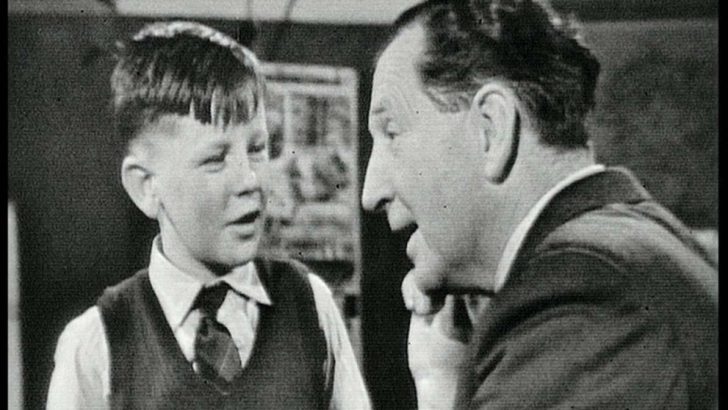By the Books editor
A little while ago, from a book picked up in my book-hunting rambles, I plucked a leaflet on Choosing pupils for The School around the Corner. This was once among the most popular programmes that Radió Éireann (as the single national station was then called) ever broadcast. Some reflections on it may strike a chord in these return to school days of gloomy September.
It was printed for the then celebrated Paddy Crosbie, the compare of the show, for sending out to the principals or managers of national schools around the country on request who had expressed an interest in their school taking part. It is dated February 18, 1958, and was sent from his own home to a local curate on a Dublin southside parish.
Mr Crosbie, who was himself a national school teacher of great experience – the epitome of a ‘lovely man’ to many parents – is direct enough. (However I have rearranged his remarks for use here however):
“Pick four chatty, talkative youngsters who have two or three true funny incidents to narrate — the younger they are the better; say, from six to twelve. The ideal four would be of ages: (1) 6 or 7; (2) 7 or 8; (3) 9 or 10; (4) 11 or 12. There will be no need for a rehearsal.”
Recite
“One pupil will be required to recite and sing in Irish, and if fluent enough, will be required to chat in Irish. If in doubt here, contact me.
“Look for clear voices and strong accents. Do not be afraid to choose back-benchers, I promise that they will not ‘let down’ the school.
“The ‘harum-scarum’ type is best, e.g. the youngster who has mitched (and has been caught).
“Arm each with a short poem (for recitation) and a song. Of the four, have two patriotic songs or ballads, and two popular or funny (for community singing).
“Do not pick any pupil on ‘school merit’ only. A ‘weak’ pupil who has the gift of the gab will always shine in this feature. ‘Cheekiness’, however, is not wanted.
“The informal chat will be based on home, relations, holidays, pets, likes and dislikes, ambitions, school, pastimes, accidents, escapades, etc., and above all, on true funny incidents.”
So much for Paddy Crosbie’s communication: it is interesting to learn that for Paddy Crosbie the best types for the programme were characters with charm and a talkative way with them, and to be preferred to the academic types: – no ‘swots’ were called for.
But then this was the year Pope John XXIII was elected and was considering calling an ecumenical council. It was a year before Éamon de Valera ‘went to the Park’, but a year after the first earth satellite was launched by the much-feared USSR. This was a the time when commerce was still studied at UCD, and not economics, let alone business management. Looking back it was, some now think, still for many an age of innocence, but one has to wonder, our grandparents were not the complete idiots that the ‘woke’ generation seems to think.
But what a sharp stab of light some of the expressions used cast on Irish attitudes, then and now. The use of the term ‘back-benchers’ for the slower students corralled at the back of the room.
Admit
And we would have to admit as regards the prominence of the devil-may-care charmers – those sorts are still with us, and given our unchanging outlook on life since the days of the Celts always will be.
These are still the personalities who manage to get on – I will leave a blank space, you can fill in names of your choice! That charm explains how some such people get to the top in Irish life. Matter a damn about the smart lads – they can be kept in a back room. What people really appreciate is the man with the retentive memory for a face and a strong handshake to circle the room at a reception.
Brains
Modern Irish society would deny discounting brains. We will be assured that so-and-so had all the brains of a man with three doctorates (real, not honorary), but often what we like to see in the papers and on television are the charmers who tell us all how great we all are.
The original show brings to mind the Ireland evoked in that fine little film by Kevin Corcoran that provided the background to the playing of the national anthem at the close of daily service when RTÉ arrived in 1960. It shows a long line of children streaming into a white-washed rural school of the just kind often built in the first days of the new state that were then a common sight.
The School Around the Corner later migrated to television. But whereas for Paddy Crosbie the children as they were called then were the real stars of the programme – and rightly so; for the professional celebrity presenters of today they are the stars and the kids, as children have now become, are there to support them.
Ah, yes, we do indeed live in a different moral climate.


 Peter Costello
Peter Costello Paddy Crosbie with a young guest in the heyday of The
School around the Corner
Paddy Crosbie with a young guest in the heyday of The
School around the Corner 